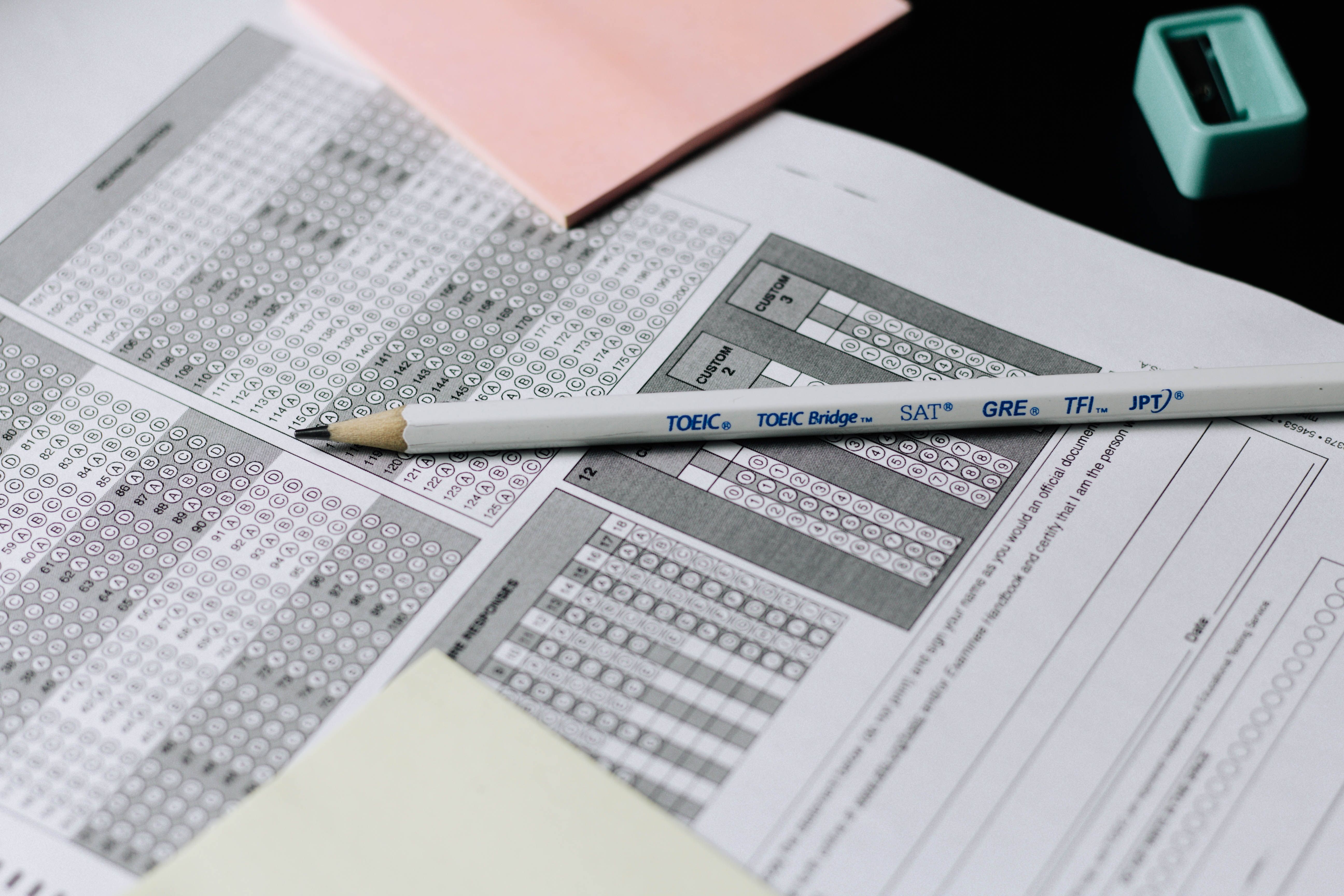![Should You Take the SAT or ACT in 2023 [EXPERT ADVICE] Should You Take the SAT or ACT in 2023 [EXPERT ADVICE]](/_next/image?url=https%3A%2F%2Fcdn.sanity.io%2Fimages%2F7i1ps9pf%2Fproduction%2Fa489bac2b32dd5ad0d3b4c48b0dd9662705f5e7b-768x433.jpg&w=3840&q=75)
Should You Take the SAT or ACT in 2023 [EXPERT ADVICE]
In response to the Covid-19 pandemic, many schools have remained test-optional, leaving students wondering whether or not it is worth their time and energy to prepare for an exam that is not, strictly speaking, necessary. The question remains: should I take the SAT or ACT? The answer depends on the individual, but for many students, it’s “yes.”

Should You Still Take the SAT or ACT in 2023?
In response to the Covid-19 pandemic, during which in-person testing became a logistical nightmare, many colleges and universities decided that they would no longer require students to submit their SAT/ACT schools as part of their application process. Years later, many schools have remained test-optional, leaving students wondering whether or not it is worth their time and energy to prepare for an exam that is not, strictly speaking, necessary. The question remains: should you take the SAT or ACT? The answer depends on the individual, but for many students, it’s “yes.”
What Does “Test-Optional” Really Mean?
Many students believe the recent “test-optional” policy adopted by many colleges and universities in the US is cause to celebrate. Indeed, for some students who have other ways to show their dream school that they are driven and intellectually curious, it’s good to know that there is now one less hoop to jump through. So if you’ve won a Grammy or started your own business, or if you’ve done well in summer pre-college or online college courses, then you may not have to take the tests. However, it is important to be aware that NOT submitting a score is still sending a message to the schools you apply to. It also means that you are supplying one less data point for the admissions committee to consider. This is fine, as long as you have other data points that set you apart from the crowd. That being said, submitting a score is a decision that should not be taken lightly, and in many cases, it may still be in a student’s best interest to prepare for and take the ACT or SAT.
It is also worth mentioning that test optional in theory and test optional in practice are two different things. It’s safe to say that any completive private college or university is not test-optional, even if they say there are. Their admissions departments require evidence of both high academic rigor and a student’s willingness to take on a challenge, and for many elite schools, a high ACT or SAT score provides this evidence.

Who MUST Take the SAT or ACT?
In addition to anyone seeking admission to a top-tier private university, recruited student athletes should give extra consideration to taking the SAT or ACT. One of the first questions coaches ask during the recruiting process is “What are your scores like?” Although you may be an incredible athlete, you will not be admitted to an Ivy league school if your scores are not within the range of non-athletes— and coaches know that. Even “test-optional” schools still have parameters and won’t accept an athlete who cannot handle a certain level of academic rigor. By taking the ACT or SAT exam, and doing well, students can demonstrate both their athletic and academic prowess. Students should research what the test score range is for a given college. If their scores aren’t even remotely close, then that school probably isn’t a good fit.
Some colleges have also reinstated testing requirements for their applicants, meaning they are no longer “test-optional.” As of today, students who want to attend state colleges in Florida and Georgia are once again required to take SAT or ACT exams. It is paramount to check the requirements of each school you are applying to before deciding to not take the SAT or ACT.
Another thing to watch out for: while your dream college or university may be “test-optional,” be sure to check that the major you are applying for doesn’t require the SAT or ACT. For example, the University of Iowa is “test optional,” but students hoping to pursue a nursing degree must submit a minimum of a 1300 SAT score.
Who SHOULD Take the SAT or ACT?
If your SAT or ACT score won’t hurt your application, you should submit it. We’ve seen statistics from last year coming out and some schools reportedly admitted double the number of students who submitted their test scores as compared to the number of students admitted without a test score. At a recent industry conference, we heard that Colgate University had a 12% admittance rate among those with an SAT or ACT and a 25% admittance rate for those who submitted a test score. While we can’t be sure that the test score was the only difference in these applications, these kinds of statistics tell us that submitting a score will most likely boost your admissions prospects.
Students who are able to obtain higher scores on the tests are also eligible for several scholarships, such as the National Merit. While less than 1% of students are National Merit winners, many colleges will offer more money if a student is a National Merit finalist. For example, at Clemson University in South Carolina, students scoring 29 on the ACT and 1340 on the SAT or higher are automatically considered for scholarships! Another good example is the ExxonMobil award, which offers an Engineering Scholarship and gives out thousands of dollars in money every year. There is a minimum SAT score requirement that students have to meet in order to apply. To be eligible for as many scholarship awards as possible, students should definitely think about taking these tests.
Who SHOULDN’T Take the SAT or ACT?
If you are the first generation in your family to go to college, you could maybe skip the SAT and ACT. Many of the most prestigious universities are making huge efforts to include as many first generation and minority students as possible in their numbers to promote diversity, equity, and inclusion. As a result, test scores are understandably less important for students who are in these groups. Leading the pack, Cornell recently announced that 20% of the 2021 freshman class is made up of 1st generation college goers, and most of these students did not submit test scores!
Should I Take Both the SAT and ACT?
No, it is not necessary to take both the SAT and ACT, as almost all schools accept either score. Although some students may take both tests to see which they perform better on, they will eventually focus their efforts on one in order to optimize study time. We recommend taking an initial SAT/ACT diagnostic to determine which test will result in a higher score.

The Advantages of SAT/ACT Test Prep
During the pandemic, many students and teachers lost valuable instruction time, resulting in the much lamented Covid “learning loss.” Prepping for the ACT or SAT with a seasoned tutor can help identify what a student has missed in their education and fill in these knowledge gaps. Filling these gaps will most certainly help with other coursework and even AP exams. Although it does take time and commitment, SAT Tutoring or ACT Tutoring can be an excellent way to make sure a student is up to speed for both high school and college level coursework.
So You Wanna Take the SAT or ACT?
We recommend taking an SAT and ACT diagnostic in the spring of sophomore year or, at latest, in the fall of Junior year of high school. From this diagnostic test, you will learn how far your initial score is from the scholarship range, from the median score accepted by the schools on your college list, or from the score needed to be recruited for a sport. If you are about 200 SAT points (or 6 ACT) away from one of these goals, it is worth your while to put in the time and effort to show colleges that you have the determination and drive to take on a difficult challenge and succeed. As someone who has worked in the test preparation industry for over two decades, I recommend starting at least three months prior to a test date and taking frequent timed practice. If a student cannot commit to putting in the time or effort, then they will likely not improve. When it comes to college admission, students who show great scores and/or a big improvement in their scores still have the upperhand!



